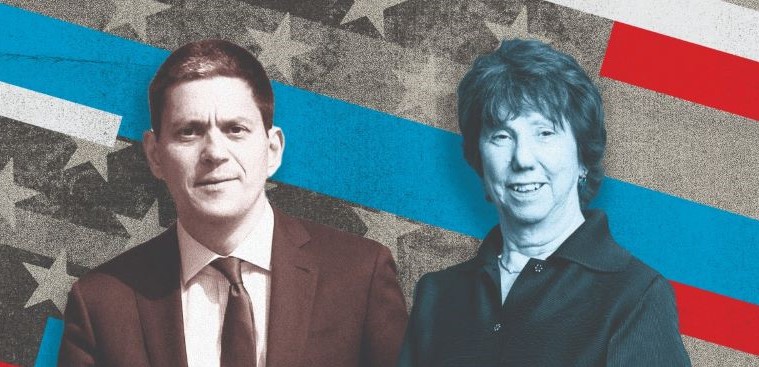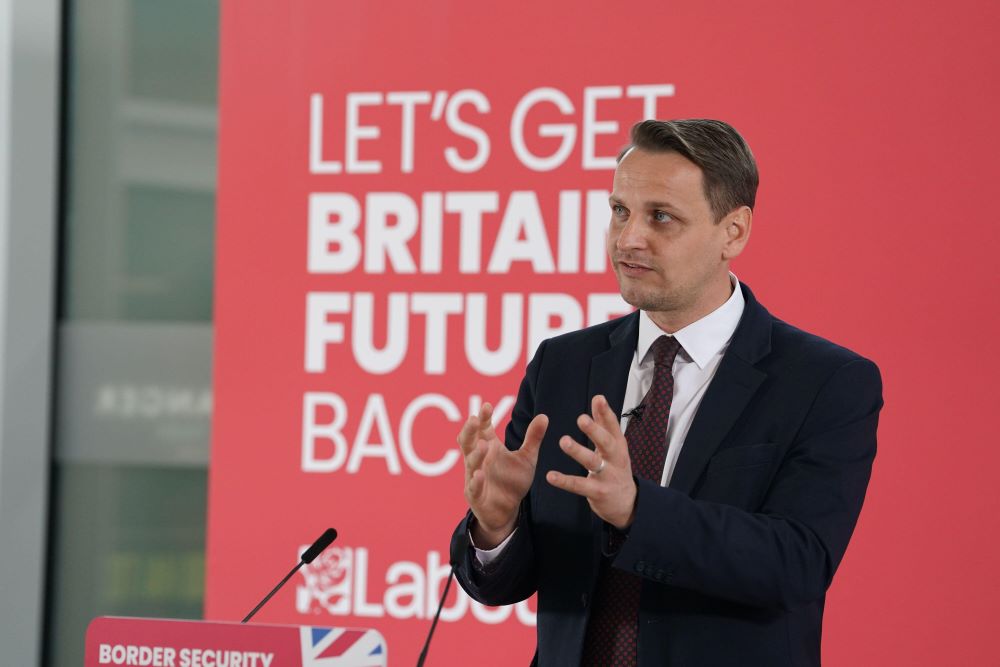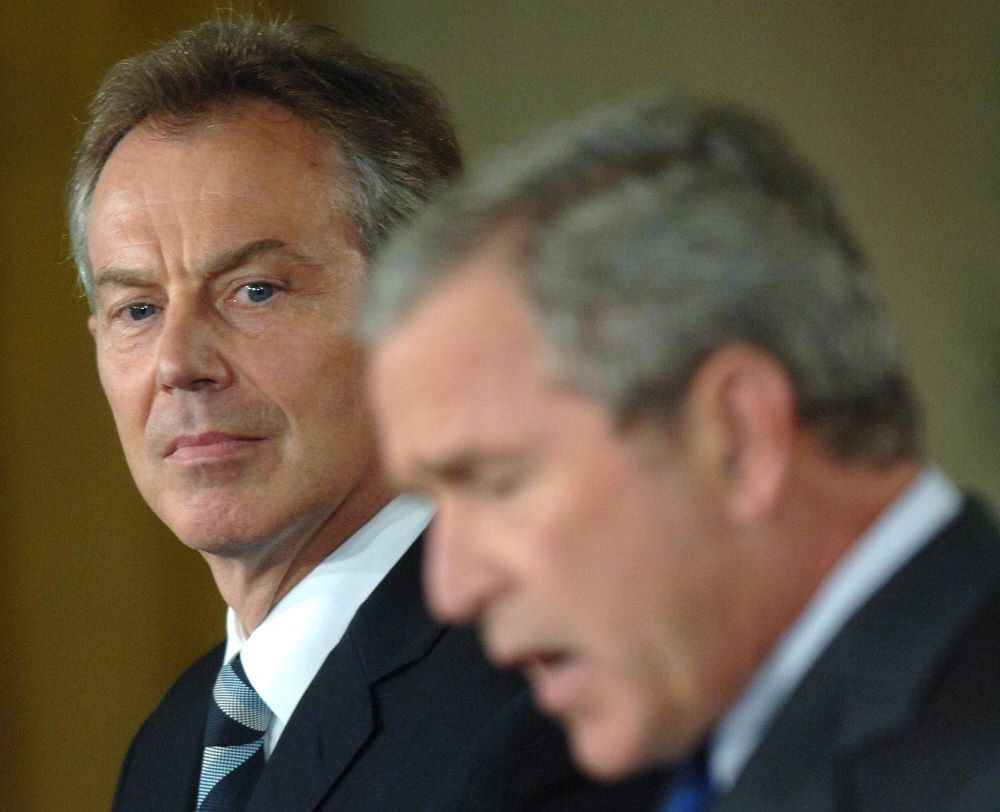Who Will Be Keir Starmer's Ambassador To The US?
10 min read
Alongside the tight race to the White House, the coveted job of UK ambassador to the US is up for grabs. Harriet Symonds finds out who’s in the running for the job and digs into how Labour is preparing for a renewed special relationship with the US.
As tension mounts ahead of what looks set to be one of the tightest US presidential elections of modern times, a British sub-plot is also unfolding.
Keir Starmer, faced with a decision on who to appoint as the next UK ambassador to Washington, has sensibly postponed the choice until after 5 November.
The appointment sits at the top of a wider set of decisions on how Starmer will seek to manage a relationship critical to UK interests and fraught with risk.
Investigating the dilemma it becomes clear that the new Prime Minister wants to make the ambassador appointment quickly after the election.
In the event of a Harris-Walz victory, sources suspect a political appointment would be the most attractive option for Labour. Among the names being floated are David Miliband, Baroness Cathy Ashton, Baroness Valerie Amos and Jonathan Powell. Lord Mandelson was in the running but has ruled himself out.
“If I had to place a bet now, I’d bet on David Miliband,” predicts one senior career diplomat of what would happen if Trump lost.
“It’s possible,” adds a senior Labour figure now advising David Lammy’s team on foreign policy. “He’s certainly well-placed, particularly if the Democrats were to win.”
A former foreign secretary under Gordon Brown and brother of Ed Miliband, David Miliband has been residing in New York since 2013, heading up the International Rescue Committee. Sources speculate that with Labour now back in government the old ‘heir to Blair’ is looking for a way back into the fold and becoming ‘our man in Washington’ could be the ticket.

Typically the job has gone to career diplomats so although a political appointment would be novel, it’s not unheard of and would definitely signal Labour’s desire for a closer relationship with the US, putting someone in post that can go beyond the role of a traditional ambassador.
Cathy Ashton, once a top EU diplomat, is another popular choice for the job but has not been approached for the role, according to a source close to Ashton. The source suggested that Lord Mandelson had himself floated Ashton’s name, alongside his own, to get onto the list. Lord Mandelson declined to comment.
If Donald Trump were to win the presidential election, a political appointment becomes far less likely. The strategy will be about protecting the UK’s core interests and so a seasoned diplomat is seen as better suited for the role.
There has been speculation that the current incumbent, Karen Pierce, might be kept on in the event of a Trump victory, due to her well-placed connections in Republican circles and success setting up the Starmer-Trump phone call following the assassination attempt on the former president.
Conveniently, the new lavishly renovated British embassy in Washington is just next door to the vice-president’s residence, allowing Pierce easy access to Kamala Harris. It doesn’t hurt that she is reportedly an excellent host and quite something on the dancefloor, which has only helped her bridge senior Democrat and Republican circles while at the same time touting British interests.
But despite Pierce’s desire to stay on in post, saying she would “have to be dragged out of here by my fingernails”, insiders were quick to dispel this as an option. She has already served in the role for four years and the feeling is that it’s time for someone new.
Whoever is picked will play a key role in the UK-US relationship. Moves have already been made to foster closer relationships in both camps, but particularly between Labour and the Democrats.
Over recent months senior Labour aides in Starmer’s office and HQ, along with new Labour MPs, have flown out to the US to meet with Harris’ team, sharing tips and strategy to beat Trump.
The DC think tank Progressive Policy Institute (PPI), run by Starmer’s former policy director Claire Ainsley, has played a huge part in organising these trips and bridging relationships between the two parties. Another DC-based think tank Third Way is following suit, recently appointing Ed Owen – a former adviser to Tony Blair’s foreign secretary Jack Straw – as a visiting fellow to help deepen Labour-Democrat relationships further. The think tank is hosting a fringe event on the US election and future transatlantic relations at Labour Party Conference, with new Labour MP Josh Simons, formerly head of the influential think tank Labour Together, appearing on the panel.

Labour and the Democrats have long been considered sister parties and it’s no secret that the party would prefer a Democrat victory in November. At the moment, Harris’ team are interested in learning what worked and what didn’t for Labour in the UK election. If Harris does win, the relationship could result in closer collaboration on policy, diplomacy, and security that goes beyond just winning an election.
“It is really important that the special relationship goes across everything”, insists Lucy Rigby, the new Labour MP for Northampton North, who attended the Democratic National Convention (DNC) last month and has met more than once with strategists in Harris’ team.
Another Labour MP on the trip, Mike Tapp, added he hoped that this was the start of more collaboration between the two governments: “I do hope so because our nation’s security and prosperity is only going to benefit from a close relationship with the United States. That special relationship is strong.”
The UK and the US have always had a special relationship, fluctuating over time and peaking during the Blair years. But with a far-right resurgence in Europe, renewing this close partnership could be vitally important.
“What will count for the Americans is that the UK, of all the big countries in Europe, will have the strongest and most authoritative government”, says Lord Simon McDonald, former head of the Foreign Office. “When I look at France and Germany and Italy and Spain their politics are a mess, and after the election this summer, British politics has sorted itself out. So for the foreseeable future the Americans have a dependable government in London.”
Starmer and Harris have not yet met, but already have much in common. “They are both prosecutors, this means they have a mindset that will recognise each other”, explains McDonald.
But whether the relationship will have the same pull as Tony Blair and Bill Clinton’s is less certain.
“I don’t think either of them are particularly warm, empathetic individuals unlike, say, Blair’s popular appeal and Clinton’s genius at connecting with voters. These are two quite cautious lawyers,” observes a senior diplomat.
Under a Trump presidency, Labour’s priority will be to protect the core aspects of the relationship between the US and the UK. “It’s Keir’s style to want to build, as best he can, a personal relationship with Trump based on key UK interests”, says one former Labour foreign affairs adviser. “It’ll be a challenge, of course, because any statement Trump makes will immediately be put to Starmer, but he’ll be conscious of that and will not look to play games.”
“He’ll do his best. On the surface, the first meeting is probably going to look reasonably friendly. Starmer will be professional about it I’m sure”, adds one diplomat.
But the new Foreign Secretary David Lammy finds himself in a tricky position over his past comments about Trump. During his first presidency Lammy called Trump a “neo-Nazi sympathiser” who posed “a profound threat to the international order”. Since then Lammy has rowed back on his comments, committing to work with whoever ends up in the White House and making efforts to meet with Trump’s team.
“Boris Johnson made the fruitiest comments of all, and yet he had a pretty good relationship with Trump”, jokes McDonald.
“[Trump] can be spoken to. It’s not a standard conversation, but he also understands power. He will see that the Labour government is the one that looks steadiest in its country, and I think he will respond to that”, adds McDonald. “Clever people can make the relationship work even if they don’t feel personal sympathy.”

One senior Labour figure recalls how Blair made it work with Bush in the 00s, demonstrating the relationship between prime minister and president is based more on personality than ideology. “Tony had a very good relationship with Clinton and then you get this ideological Republican taking over. There was a lot of anxiety here, and I think in Washington as well, about how the relationship would work out. What cemented the relationship between Tony and George Bush was Tony’s reaction to 9/11 and the emotional political support he gave to Bush.”
Starmer might look to replicate the close relationship that Trump had with the former Japanese prime minister, Shinzo Abe – “no frills, no fuss, no noise”, as the Labour adviser describes it. “If Keir develops that no frills relationship, the UK could again play that important role between the US and Europe and be something of a bridge between the two.”
But whoever wins in November, a UK trade deal with the US appears increasingly unlikely. “The presidency is most entirely irrelevant to that,” explains McDonald. “I predict it will not happen in the next five years. This is really, really difficult. The players are many, most of them are unsympathetic to the idea of trade deals full stop.”
Even if Starmer manages to develop a productive relationship with Trump, the two are at odds on a host of foreign policy issues.
Starmer and Lammy will face an uphill battle to get Trump to shift his position. “[Trump] knows that it’s his last chance so he will be even more determined to deliver his agenda,” explains one senior diplomat.
War in Ukraine is a key concern, with Trump previously declaring he could solve the war in 24 hours.
“There is no conceivable chance that Putin would say, ‘Okay, well, we’ll do a deal. I’ll give all the territory back’. No chance,” says a senior diplomat of a deal with Putin. “The only deal that can be done is one in which Putin keeps what he’s got, and probably also forces Zelensky to move his troops from the chunk of Russian territory that they have taken.”
Trump’s actions, they believe, would reward Vladimir Putin’s aggression and be a huge defeat for Nato and the West. “The fear then is that Putin thinks, ‘well, that worked. Where next?’” adds the senior diplomat.
Top diplomat Simon McDonald tells says the prospect of a second Trump presidency is “alarming”.
“When I listen to Trump about most policy areas, about the areas that are very important to the United Kingdom, he says things which disturb me and which I think should make the government pause. He is not where he needs to be, on Ukraine, on Nato, on climate, on China.”
But if there is a second Trump presidency, Labour will have to make the best of it. “It’s not in anyone’s interests to create further division or conflict, there will be enough of that,” warns one former Labour adviser. “Britain is going to have to muck in and do the best it can. It can’t sit on the sidelines and just criticise and finger-wag.”
